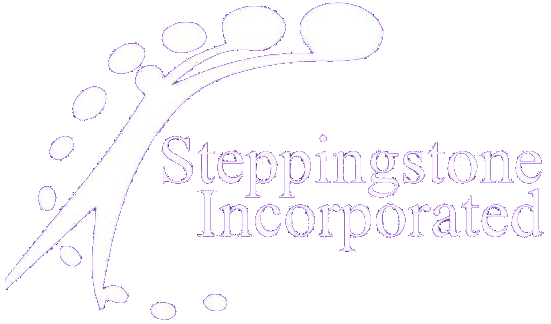About Us
Steppingstone Inc. - Providing Tools to Help Others Grow
Who We Are
Our Mission
Steppingstone Incorporated’s mission is to strengthen quality of life among individuals and families of our community through providing comprehensive client-center programs and services that enhance well-being and promote independence.

Steppingstone’s vision is to excel in empowering individuals and families to reach their highest potential in mind, body and spirit; achieved through staff development, financial feasibility, developing and expansion of target populations, and community collaboration.
Our Vision


